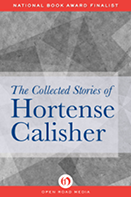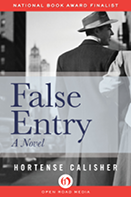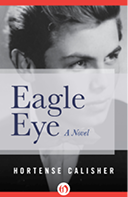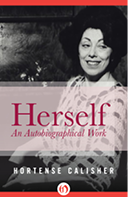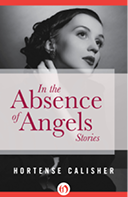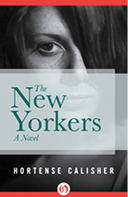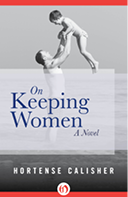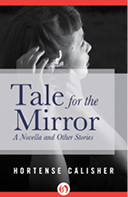Age (13 page)
Authors: Hortense Calisher

I turn over the packet of cigarettes, Benson & Hedges, in their smart, uncrumpled pack, only one gone. Kit’s, her trademark, for all the years we knew her. Plus those butane lighters, scattered over her friends’ houses like seed.
‘No lighter?’
‘No. I looked.’
The omelet is as plump as on our first morning together, the espresso as strong. Our digestions have lasted. Kit’s cigarettes have been dropped in the melee of provender on the night table. I pick them up. ‘She didn’t smoke while she was here.’
‘She knows we don’t now. Knew.’
Haven’t for twenty years. I quit first, then Gemma. I take out two cigarettes. I recall this brand as ovals; these are not. A pity. ‘Let’s.’
In memoriam? She doesn’t have to say.
Our smoke goes straight up. And still makes us cough. Carefully we grind out the stubs.
‘Gertrude’s gathered in the crowd,’ Gemma says. ‘In her own way.’
I sit up hard. ‘Never. Not us. It’s on me—whatever we do now. And on you. And Gemma—listen.’ Now is the time. ‘You remember that water system I had at the farm—the old ram?’ I lean back on the pillow, dreaming it. ‘What a sound it made.’
She nods that rhythm, and herself, into the crook of my arm. ‘“Like circumstance,” you said, “nudging destiny.” I was never sure what you meant.’
Nor was I. But in those words I could hear the ram. ‘The new land has water for such a system. And a ravine just right for it. No pond yet—but easy. Will you build me a house on it?’
How quiet she is. Then she reached up to stroke the cords of my neck, all too prominent these days. ‘You’re my building,’ she whispered. Then she rolled over on her face. Against my breastbone, the dry sobs came, deep and regular, a sound like quicksand sucking in. That I had pulled her from?
I can’t sob. But I had to get up and pee or else wet the bed. The body calls the tune these days. And who says a man don’t pee sitting down?
When I return she’s flung back against the headboard like a Nike, eyes closed. ‘I’m seeing it. Drawing it.’ The tears seep down.
‘Psyche, psyche, psyche,’
she says, eyes fast shut. ‘That’s a bird.’
At her side of the bed the fancy Roman-numbered clock the girls brought us one year from Italy ticks on. It came with its own gift card, on which the Latin text,
Ars longa et vita brevis
est—in my youth usually translated as ‘Art is long and time is fleeting’—was inscribed in both the Latin and the Italian. Under which someone, I suspect Arturo, had painstakingly lettered: ‘Art is long going, time fleets.’ At the first sight of which, I am not ashamed to say, I added: ‘On little cats’ feets.’ But the clock, still baring its gaunt numerals like a patrician with black teeth, ticks on. Perhaps we should sell it with the house.
Can she build the new one? Her blueprints were always as beautiful as lace. No contractor ever had trouble with them. But there’s more to it than drawing. We shall have to act together—as one. As a single, slightly damaged persona we now are. Taking care as we can that the Rupert half and the Gemma half are not
non compos mentis
at the same time. Plato would be interested.
Funny—how the schoolboy Latin filters back, tasting of penny candy and smelling of Father Schlegel as he whiffed past the one little Protestant. I shall be bobbing for apples next, with childhood’s long scoop. But the meditation that comes with these penny memories is plenty adult, staring as it must into death’s eyeless eye.
Gemma’s eyes are open now.
‘We must use the whole house of ourselves,’ I said. ‘Not close up room after room in us, and live in one. As old people do. And we must let history in. We tend to stop it at the door.’
‘I shall miss this kitchen,’ Gemma says. Had she misunderstood my meaning? No, she had not. For then she giggled. ‘But maybe the Prendergast will turn real.’
Lazily now, she watches as I write, each of us feeling her mind stream into mine. ‘What’s that you’re writing?’ she says. Is she teasing?
‘An—archive.’ The end of one.
‘Ah—yes that’s it,’ she says. ‘Not an almanac. Archives are not so—relentless, day after day. They—accumulate.’
‘And can be printed up.’
When I scold I can see in her face that waif under a piano, her mouth an overturned U. I did print up a copy of my half, just in case. And put it in the bank, for Christina.’
‘Just in case?’ I had to smile. Just in case she was the one to survive? No smiling matter. But I have to. ‘Well.’
‘I knew you wouldn’t mind.’
‘No.’ Scarcely.
‘I mean—if you could have known.’
‘No.’ It strikes me that the boundaries between what one will or will not know—and when—are gently blurring. ‘No—I wouldn’t have minded Christina.’
She has to smile too, but there’s no malice in it. Acceptance, rather. ‘Well.’
And then, right here on the page, this new cheaper lined paper so simple to destroy or keep, a true solution comes to me. As it must have come to Sherm and Kit, in their way. As to all death’s apprentices. How to end. How to go on.
‘We’ll read them both, tomorrow. Side by side, here. I—yours. You—mine.’
Her hand steals into mine. ‘Or—on the plane. Rupert—I bought you a ticket too.’
After a minute she says: ‘Are you surprised?’
Not really. Not if I look at our lives straight. Or at our generation.
‘Secrets—’ she says, ‘have you minded them much? As—breaches of promise?’
Absolutist that I have been, I have minded—some. Even though I too have read them. I read a page or two of her record before it left the house. ‘I try not to. After all, what did we promise? Faith—without works.’
I see her nod through the shadow. At this house our only light is as we like it best—the tenacious rose-prickling of the city, from outside. On a nest.
‘And do you mind?’ I said. ‘My secrets?’
‘No.’ She said it faintly, sleepily. ‘They sparkle—in the dark.’
That will be the last thing she says, I thought—the last I will have to record. Then her voice came strong—‘And in the new house I’ll say
Living—
at least once a day’—and faded.
We are all apprentices. When looking into the eyeless eye. I reach across her body for the inhalator, holding it like a weapon.
I see the pond, jeweled with duck. The ram rides in, and retracts.
Whoom,
a-duh. A-duh—
whoom.
I hear the moss budge. Our nest here still smells of the sexual. I touch her there.
So the blank wall darkens. As we ride toward it.
Our bed a skiff.
As any child can see.
Hortense Calisher (1911–2009) was born in New York City. The daughter of a young German-Jewish immigrant mother and a somewhat older Jewish father from Virginia, she graduated from Barnard College in 1932 and worked as a sales clerk before marrying and moving to Nyack, New York, to raise her family. Her first book, a collection of short stories titled
In the Absence of Angels
, appeared in 1951. She went on to publish two dozen more works of fiction and memoir, writing into her nineties. A past president of the American Academy of Arts and Letters and of PEN, the worldwide association of writers, she was a National Book Award finalist three times, won an O. Henry Award for “The Night Club in the Woods” and the 1986 Janet Heidinger Kafka Prize for
The Bobby Soxer
, and was awarded Guggenheim Fellowships in 1952 and 1955.
All rights reserved, including without limitation the right to reproduce this ebook or any portion thereof in any form or by any means, whether electronic or mechanical, now known or hereinafter invented, without the express written permission of the publisher.
This is a work of fiction. Names, characters, places, events, and incidents either are the product of the author’s imagination or are used fictitiously. Any resemblance to actual persons, living or dead, businesses, companies, events, or locales is entirely coincidental.
Copyright © 1987, 1996 by Hortense Calisher
Cover design by Kelly Parr
978-1-4804-3742-5
This edition published in 2013 by Open Road Integrated Media, Inc.
345 Hudson Street
New York, NY 10014

